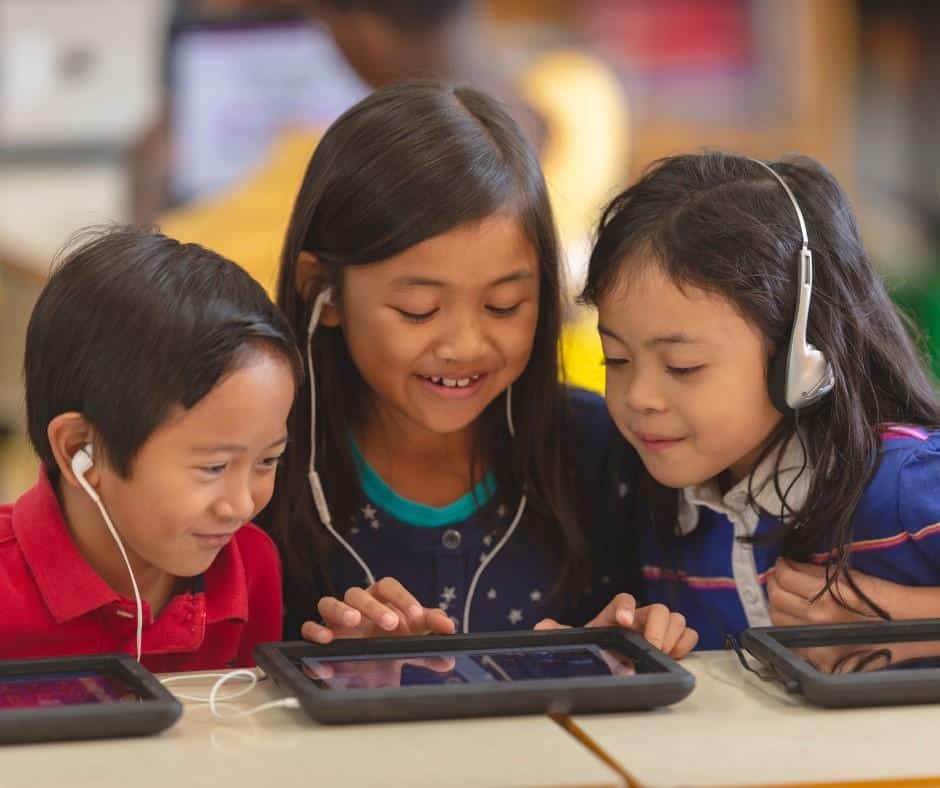10 Games and activities that can help develop language skills in preschoolers
10 Games and Activities That Can Help Develop Language Skills in Preschoolers
Are you looking for engaging ways to enhance your preschooler’s language development? From storytelling to rhyming games, numerous fun activities can help your child build a strong foundation in language skills.
Let’s explore ten exciting games and activities that are not only enjoyable but also effective in nurturing language abilities in preschoolers.

1. Interactive Storytelling
Interactive storytelling is a fantastic way to captivate preschoolers’ imaginations while fostering language skills. Encourage your child to participate by asking questions, predicting outcomes, or even acting out parts of the story.
For instance, you can try the “Story in a Bag” activity, where children reach into a bag filled with props and use them to create a story together:
- Step 1: Assign one person to gather the same number of items for the bag as there are persons.
- Step 2: The story is initiated by the person holding the bag. They take out a single item and begin telling a tale about it.
- Step 3: After the first person finishes telling their story, the next person takes an item out of the bag.
2. Rhyming Games
Rhyming games are excellent for developing phonological awareness, a crucial skill for literacy. Engage your preschooler in activities like “Rhyming Bingo” or “Rhyme Time Memory,” where they match words that sound alike. For example, you can say a word like “cat,” and your child can find pictures or words that rhyme, such as “bat” or “hat.”
3. Vocabulary Building Activities
Expand your preschooler’s vocabulary with fun and interactive games. Try a “Word Scavenger Hunt” where children search for items around the house based on given descriptions. Another idea is “Picture-Word Matching,” where kids match pictures to corresponding words, visually reinforcing vocabulary.
4. Role-Play and Pretend Play
Encourage language development through imaginative play by setting up role-play scenarios. Whether it’s playing “Doctor’s Office” or “Restaurant,” children can engage in conversations, ask questions, and use language to express themselves within the context of the game. This helps them practice social interactions and expand their language skills.
5. Alphabet and Letter Recognition Games
You can teach the alphabet in a fun and interactive way with games like “Alphabet Bingo” or “Letter Hunt.” These activities not only help preschoolers recognize letters but also reinforce letter sounds and early reading skills. Specifically, you can hide letter cards around the room and have your child find and identify each letter.
6. Listening and Following Directions
Developing listening skills is essential for language comprehension. Play games like “Simon Says” or go on a “Listening Walk” where children listen for specific sounds or instructions. By following directions and paying attention to auditory cues, preschoolers can strengthen their language abilities.
“Simon Says” is a fun game where one person, designated as “Simon,” gives commands to the other players. Players must only follow commands that start with “Simon says.” For example, “Simon says touch your toes.” If “Simon” gives a command without saying “Simon says” first, and a player follows it, he’s out. It’s an excellent way for preschoolers to practice listening and following directions while having fun.
A “Listening Walk” is a simple outdoor activity where you and your child take a quiet stroll and listen to the sounds around you. You can encourage your child to identify different sounds, like birds singing or leaves rustling. It’s a great way to sharpen their listening skills and connect with nature.
7. Speech and Language Apps
Parents can make use of technology to support language development with educational apps designed for preschoolers. Apps like “Endless Alphabet” and “Speech Blubs” offer interactive activities that target vocabulary, speech, and language skills engagingly. Incorporating these apps into screen time can provide additional opportunities for learning.

8. Music and Movement
Music and movement activities are not only fun but also beneficial for language development. Singing songs and participating in action rhymes help preschoolers learn new words, practice pronunciation, and develop rhythm and rhyme awareness. Parents can create a playlist of their favorite songs or invent their silly rhymes to enjoy together.
9. Group Story Creation
Encourage collaboration and creativity with group storytelling activities. Gather a small group of preschoolers and take turns adding to a story, either orally or through drawing. Activities like “Story Circle” or “Round-Robin Story” allow children to practice storytelling skills, expand their vocabulary, and express their ideas in a supportive environment.
In a “Story Circle”, children sit in a circle and take turns adding to a story, building on what the previous person said. It fosters creativity, cooperation, and listening skills as children contribute ideas and weave them together into a cohesive narrative.
In “Round-Robin Story”, participants take turns adding to the story, with each person contributing a sentence or two before passing the storytelling to the next player. It encourages quick thinking, creativity, and active participation in a fast-paced, collaborative setting.

10. Picture Book Exploration
Exploring picture books is an excellent way to stimulate language development in preschoolers. You can choose colorful and engaging picture books with simple narratives and vivid illustrations.
As you read together, encourage your child to describe what they see, ask questions about the story, and make predictions about what might happen next. You point out key vocabulary words and discuss their meanings. Additionally, you can extend the activity by engaging in related crafts or dramatic play inspired by the book’s themes or characters. This interactive approach not only enhances language skills but also fosters a love for reading and storytelling in preschoolers.
Conclusion
Engaging in these games and activities not only makes language learning enjoyable but also lays a solid foundation for future academic success. Whether through storytelling, rhyming games, or pretend play, each activity offers unique opportunities for preschoolers to practice and refine their language skills. By incorporating these activities into daily routines, parents and educators can play a significant role in nurturing young children’s language development.
At Mulberry Learning, we love seeing the eyes of our children light up with awe and excitement. In engaging classroom discussions and fun creative writing practices, kids are encouraged to speak up, participate in show-and-tell, and express their creative ideas while honing their early reading, listening, speaking, and writing skills and nurturing children to become confident speakers and fluent readers.
Mulberry School Tour
Our Locations
Click here to visit our Contact Us page and view the preschool/infant care centres conveniently located near you.
CONNECT WITH US
USEFUL LINKS
About Us
Mulberry Learning prides itself on making the preschool experience both memorable and enjoyable while transforming a child into a competent explorer, an imaginative thinker, and a creative problem solver. Through our proprietary award-winning curriculum, unique Habits of Mind programme and dedicated staff who are passionate about imparting positive attitudes, Mulberry Learning holds strong in its promise to deliver a holistic education that nurtures the Future Ready Child.
A PREMIUM PRESCHOOL BRAND UNDER GLOBAL EDUHUB


